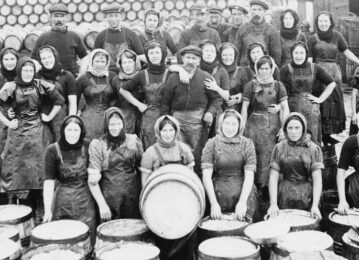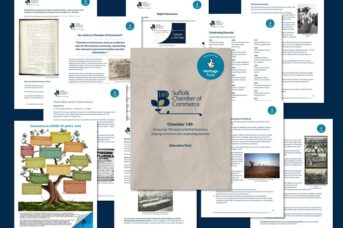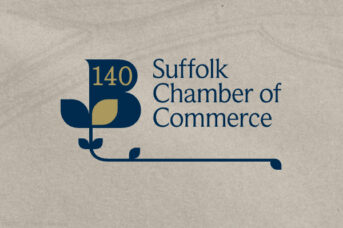From the mid-1800s, hundreds of fisherwomen, known as the Herring Lassies, flocked to the port towns of East Anglia to gut, pickle and packing herring fish. Most travelled all the way from Scotland, following the herring migration down the east coast of Britain.
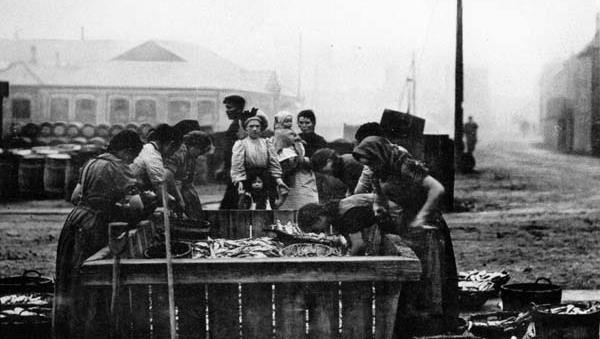
Work and Conditions
Girls as young as twelve joined the women, working in teams of around three. Two would gut the fish while the third packed, reaching speeds of up to sixty herring per minute!
But it wasn’t all smooth sailing. One particularly painful hazard involved fish scales, which could fly off and land in their eyes! The quickest fix? Using their tongues to lick the scales out! Some women even became experts at this unusual skill, becoming the designated de-scaler of the group.
Conditions were tough the herring girls, and the days were gruelling. They would work from dawn until late into the night.
It was also particularly odorous – landlords who housed the women for the season would cover all the walls and furniture with paper to protect against the fish oil and brine that would build on the women’s skin during their labour, and up to three women would share a small single room.
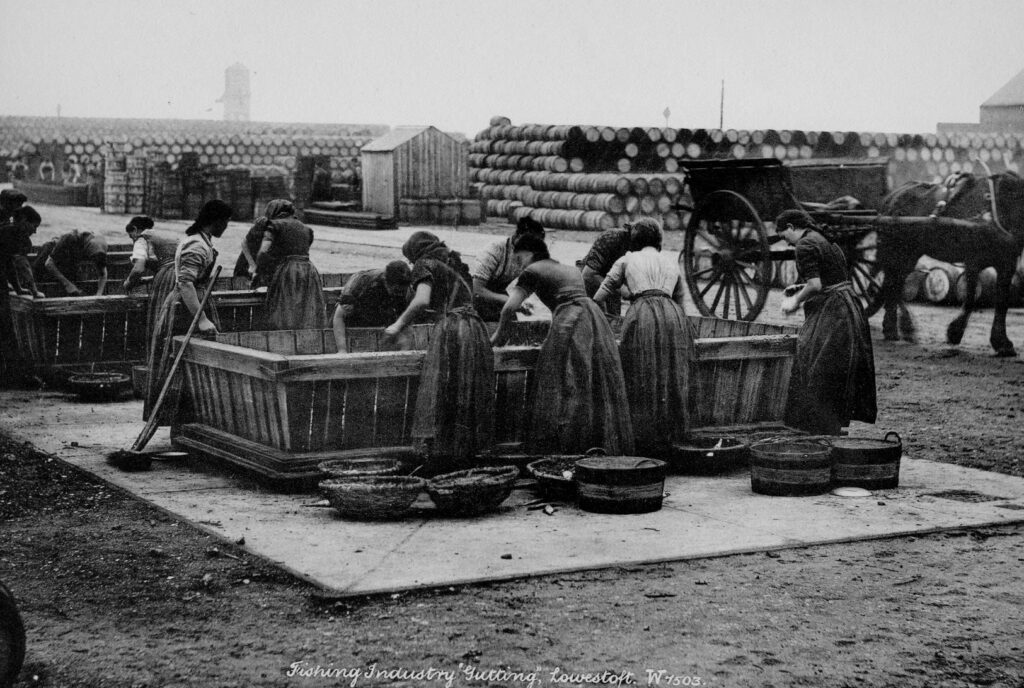
Decline in the industry
Before the First World War, most of East Anglia’s herring catch was exported to Russia and Germany. But after the war, the collapse of these markets led to tough times for the herring industry in the 1920s and 30s.
By 1936, the number of fishing girls had roughly halved to only 2,000 women.
In 1936 and 1938, the Scots Herring Lassies led a series of strikes in East Anglia, including Lowestoft, over their pay and harsh working conditions, as well as the general decline of the industry. Records of the general crisis of the fishing industry at this time have been found in the archives of the Suffolk Chamber.
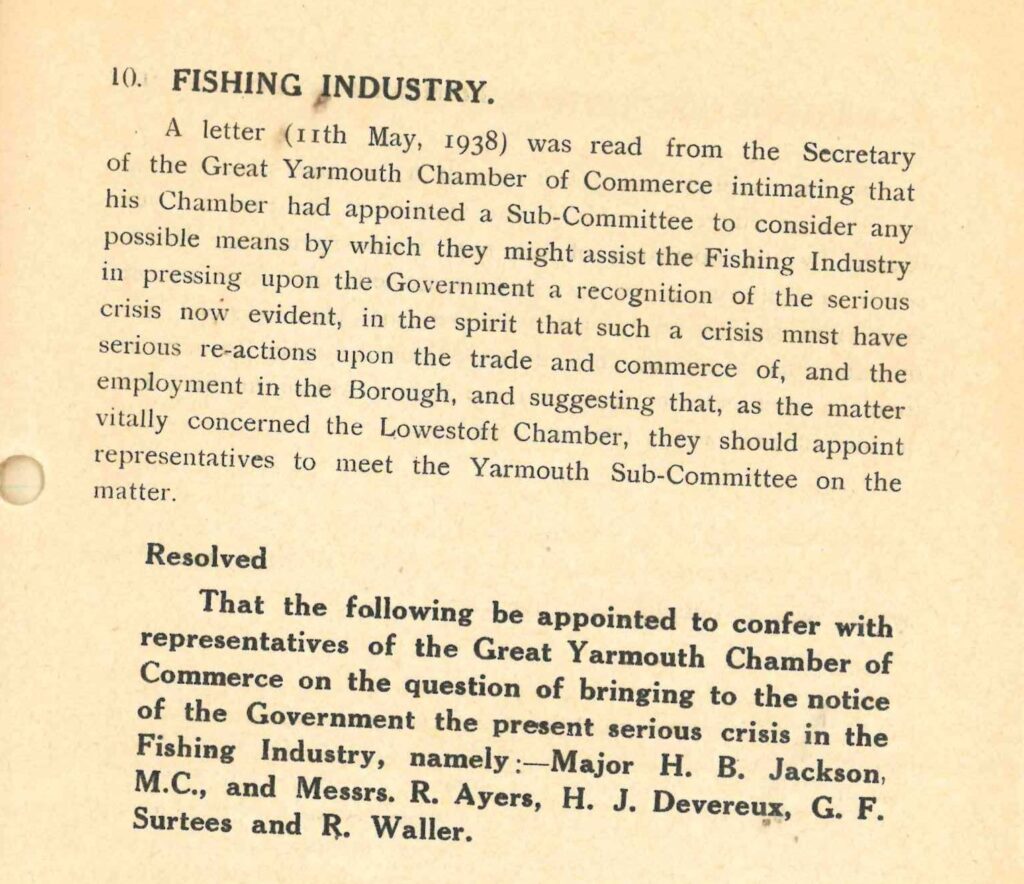
HighTide’s Herring Girls: greater than we are alone
A shilling a barrel we want
and a shilling a barrel we’ll have.
HighTide, a leading theatre writing company based in Ipswich, produced a unique song cycle called Herring Girls: greater than we are alone.
It celebrates the inspiring legacy of the herring girls’ protest over fair pay on Lowestoft beach in 1936.
The original production was performed on that same beach by an intergenerational community choir from all across Lowestoft, as the opening act of First Light Festival 2023.
HighTide commissioned leading Musical Director and Composer, Jessie Maryon Davies, and poet and playwright, Hannah Jane Walker, to work with 50 community choristers (aged 8-80) who all live in and around Lowestoft. Together they co-created this song-cycle.
Not only did the piece uphold this amazing moment in Suffolk history which influenced workers’ rights and women’s rights across the UK, but it looked to today too.
Herring Girls asked the question: “What does protest mean to you? What would you stand up for?”.
One of the songs included the lyric, written by the children in the choir: “We are unstoppable. Another world is possible!”
By the end of the one-off performance, the vast crowd on Lowestoft beach joined the choir in singing the refrain: “Greater. Greater than we are alone. Greater. Greater than we are alone.”
Made in partnership with First Light Festival, Britten Pears Arts and The Seagull Theatre. Edited for C140.
Find out more about the production here.
